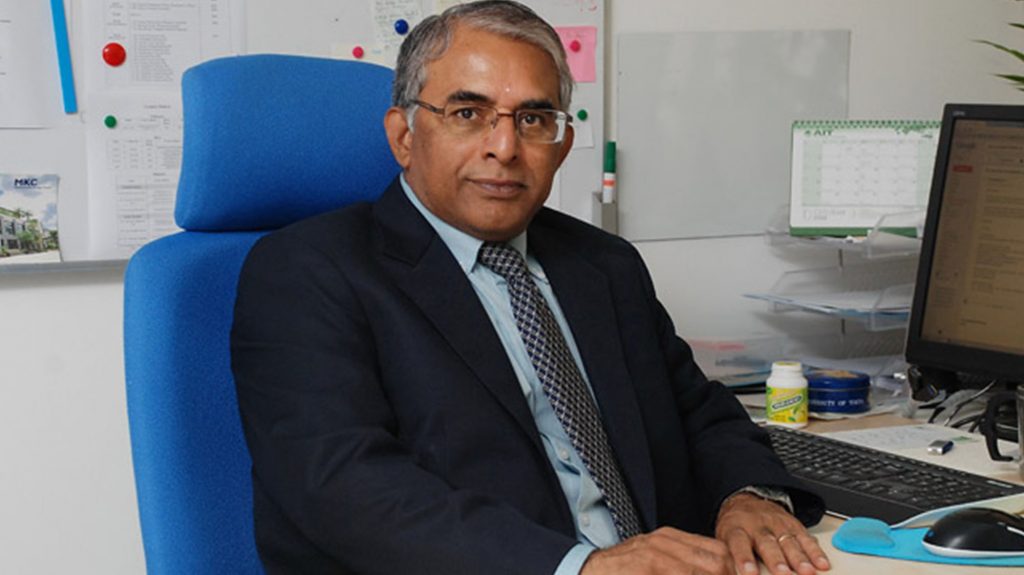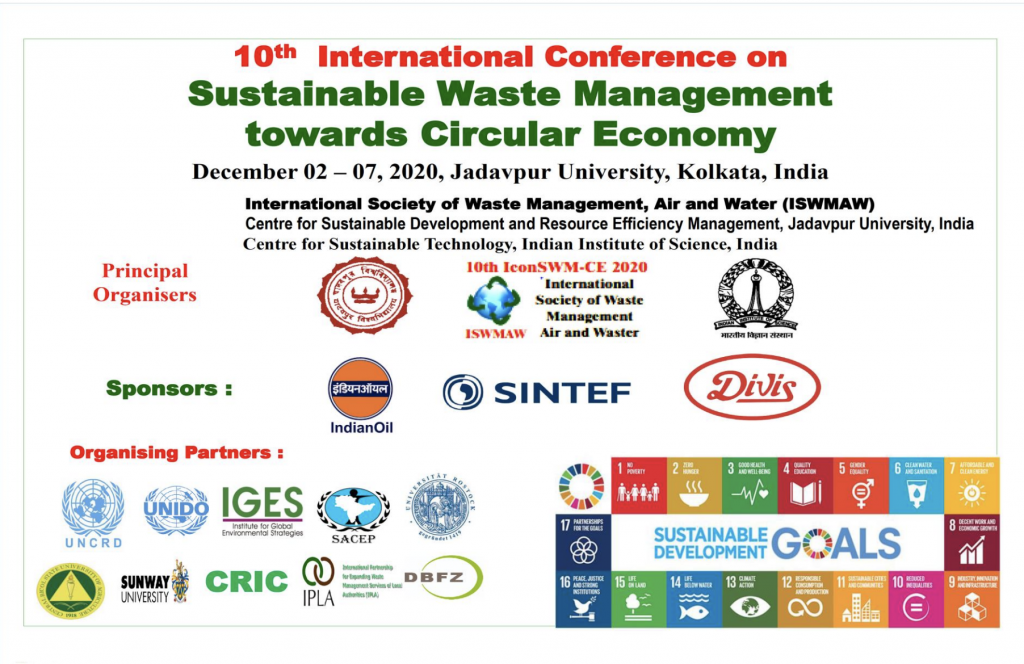By Office of Public Affairs
AIT Professor Chettiyappan Visvanathan has been awarded the International Conference on SolidWaste Management and Circular Economy (IconSWM-CE) – Lifetime Achievement Award for 2020.
Prof. Visvanathan is a faculty member of the Environmental Engineering Management program at the AIT School of Environment, Resources, and Development. He was conferred with the award at a virtual ceremony held on 7 December 2020 as part of the 10th International Conference on Sustainable Waste Management towards Circular Economy held in Jadavpur University, Kolkata, India.

Established by the International Society of Waste Management, Air and Water (ISWMAW), IconSWM-CE is one of the biggest international platforms working in the areas of waste management, circular economy and environmental protection. It recognizes the contribution of internationally well-known personalities above 55 years of age by conferring the “IconSWM-CE Lifetime Achievement Award 2020.”
Announcing the award, the IconSWM-CE and the ISWMAW International Committee acknowledged Prof. Chettiyappan Visvanathan’s contribution in the fields of waste management and environmental protection to be “significant and commendable.”
Prof. Chettiyappan Visvanathan graduated from AIT in 1984 with a Master’s degree of Engineering in Environmental Engineering and Management. He is a former Dean of School of AIT Environment, Resources, and Development (SERD) and teaches in the Department of Energy, Environment, and Climate, SERD.
According to a paper recently published by Stanford University researchers, Prof. Visvanathan is amongst the world’s top 1% of scientists based on career-wide scientific impact in his academic discipline.

The 10th IconSWM-CE 2020 was organized from 2-7 December 2020 on a virtual platform that attracted researchers, governments, industry, NGOs, international organizations from 44 countries, UNCRD, UNIDO, UNEP, and the World Bank.
The International Society of Waste Management, Air and Water works with following objectives:
-
- Promoting environmentally sound solid waste management practices, effluent treatment practices, air and water pollution control practices, and general environment protection and awareness to achieve sustainable development.
- Supporting research, policy instruments, implementation and awareness of the Sustainable Development Goals 2030.
- International cooperation and collaboration in building technological and organizational expertise to make developing cities and municipalities self-reliant in dealing with the growing generation of municipal solid waste, including new emerging waste streams such as electronic waste (E-waste), plastic waste, bio medical waste, construction and demolition waste, and household hazardous waste and industrial hazardous wastes and encouraging lower materials consumption and resource circulation.
- Recognizing significant contributions in the areas of waste management, circular economy and environmental protection.

